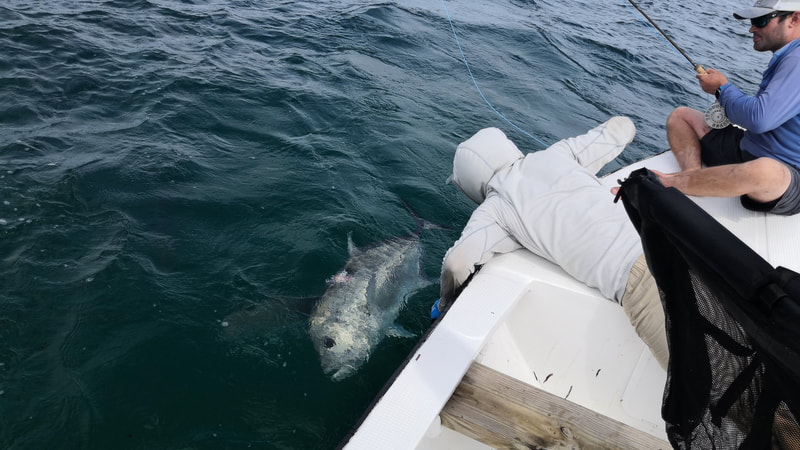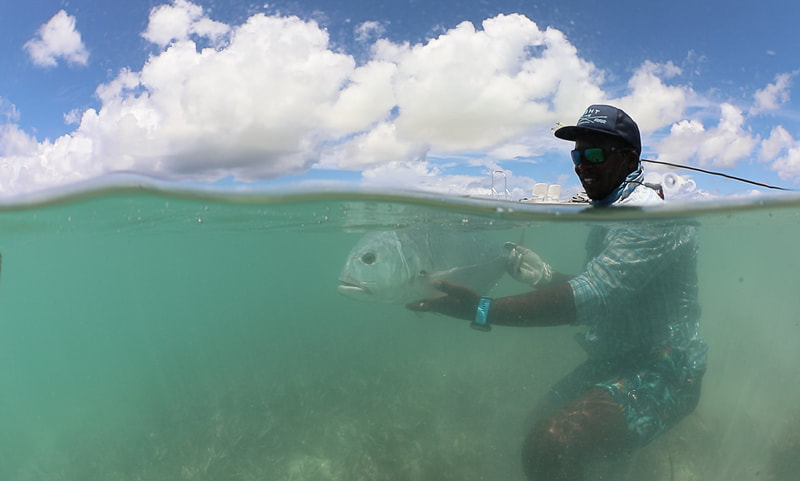|
Over the last 15 months the ICS Alphonse team has been working with the @Alphonse Fishing Company on 'accelerometer trials' on the Giant Trevally, a species which is resident within the lagoon. The tests assess reflex impairment and post-release condition to uncover the physiological and behavioural effects of catch-and-release. Last month the desired sample size of 40 was achieved. We would like to extend our gratitude to the many fishing guides who assisted ICS, in particular Trevor Sithole and Warren Graham for their enthusiasm. The data will be analysed by our partners at @UniMassachusetts and the results will help to further define the Fly-fishing Code-of-Conduct. Collaboration has been key to this @SeyCCAT funded project, and we are excited to continue working with our partners towards scientifically supported sustainable practices.
0 Comments
On the 22nd of September, much of the Alphonse Island community gathered to unload essential supplies from the first barge in six months. ICS were notified when a carcass was spotted floating in the lagoon. The 10m long-dead whale washed up on shore, allowing for the collection of measurements and DNA samples, with consideration not to burst the blubbery, bloated body, which was in a state of advanced decomposition. The tail fluke was missing and the underside eaten by sharks. Strong south-east winds kept the overwhelming stench at bay, while a JCB manoeuvred the whale into its final resting place buried in the sand. Unfortunately, the next day it was re-exposed, so staff set to work on plan B – towing it back out to sea. The shape of the skull and small anterior flipper suggest that this was a Sperm Whale and analysis of genetic samples could reveal its age and sex. Each year, conservation staff working at the remote Alphonse Group, look forward to the shift in prevailing wind from south-east to north-west, which coincides with the return of migratory birds. Many species fly back from their breeding grounds in the northern hemisphere, to over-winter in the tropics. In particular, St. François Atoll is a magnet for many species of waders, including large flocks of Crab Plover, because the lagoons and mangroves are home to plentiful fish stocks and crustaceans. In this relatively short period, the Conservation Team on Alphonse Island recorded 110 various bird species, but more migrating birds such as the Madagascar Cuckoo and Grey-tailed Tattler. Click here for more information. |
Categories
All
Archives
June 2024
|



